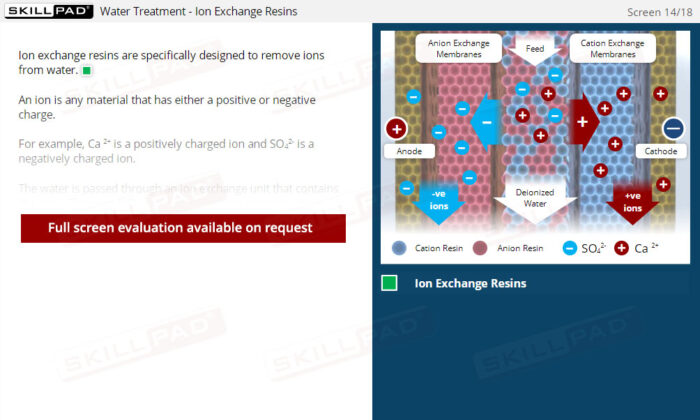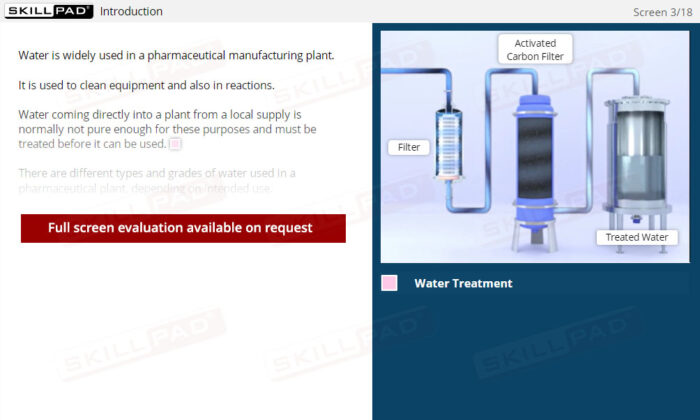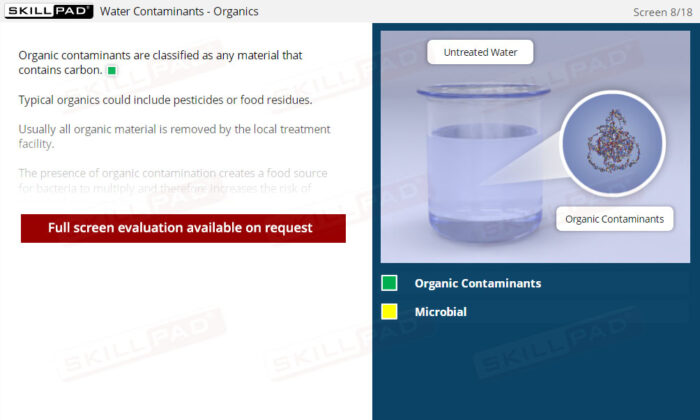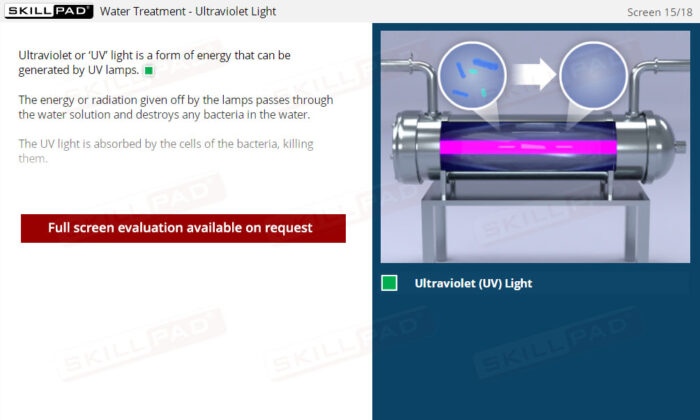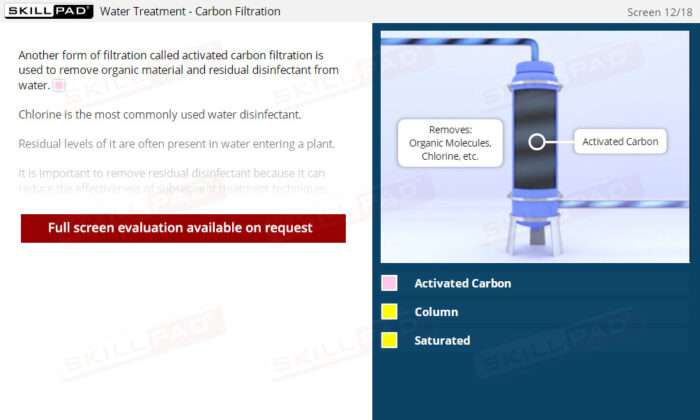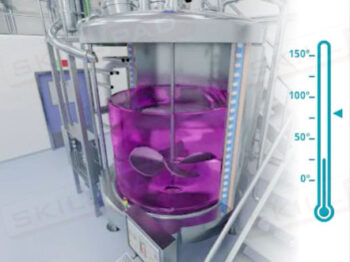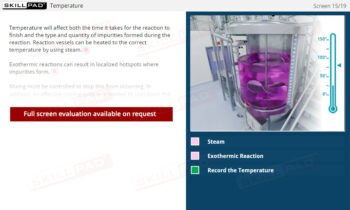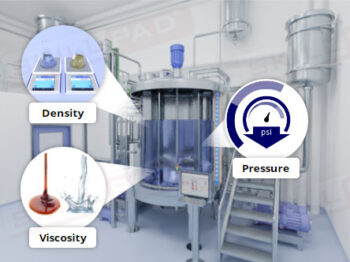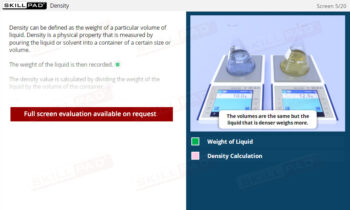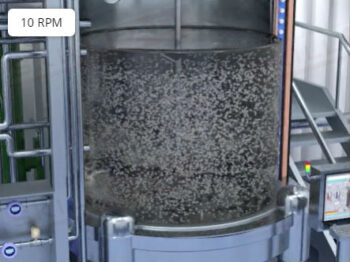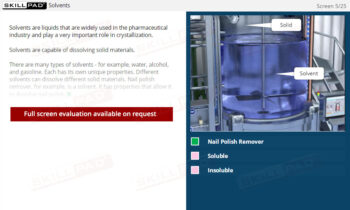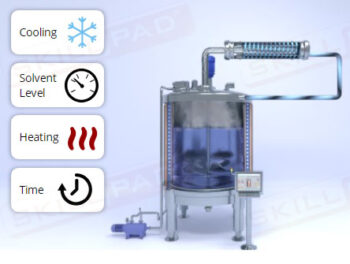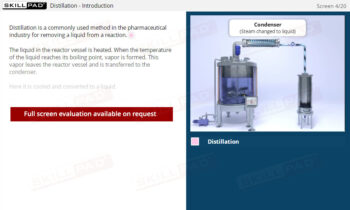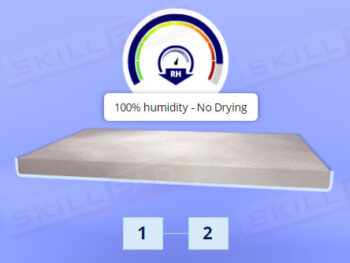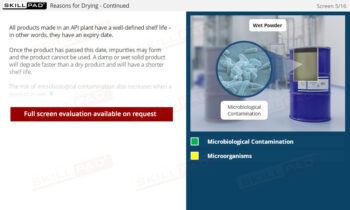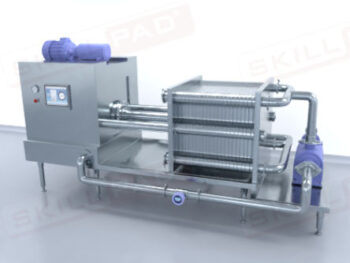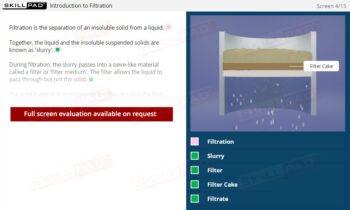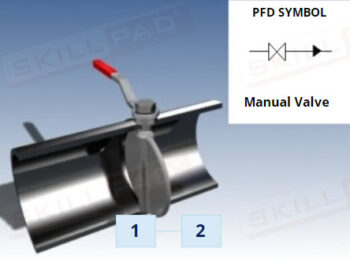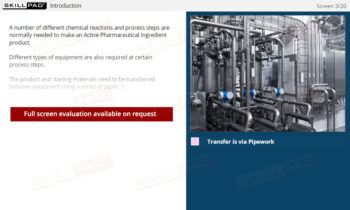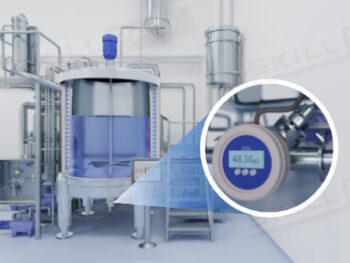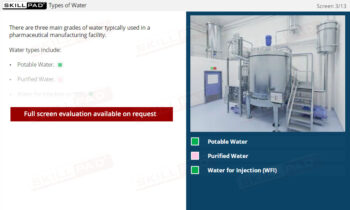Water Impurities & Treatment
An essential guide to understanding the various impurities found in water used in pharmaceutical manufacturing. It covers the types of contaminants commonly present in untreated water and the critical purification processes required to make it suitable for drug production. Learners will explore methods such as filtration, reverse osmosis, ion exchange, and ultraviolet (UV) light treatment, focusing on their importance in ensuring water quality and maintaining the integrity of pharmaceutical processes.
Whether for onboarding or annual refresher training, this Module is seamlessly deployable on any LMS and can be tailored to your company’s exact needs.
Duration: 30 Mins
Grade: Core Library
Description
- Learn About Water’s Role in Pharmaceutical Manufacturing: Understand the critical role water plays in cleaning equipment and supporting pharmaceutical reactions, and why maintaining its purity is essential.
- Identify Common Water Contaminants: Recognize various contaminants in untreated water, such as particulates, ions, microorganisms, organics, and colloids, and understand how they can impact pharmaceutical processes.
- Understand Water Treatment Methods: Gain knowledge of key water treatment methods used in pharmaceutical environments, including particulate filtration, activated carbon filtration, reverse osmosis, ion exchange, UV light treatment, and distillation.
- Recognize the Impact on Final Product Quality: Learn how inadequate water treatment can lead to product contamination, affecting patient safety and regulatory compliance.
- Apply Best Practices for Water System Maintenance: Understand the importance of circulating treated water to prevent microbial contamination and ensure a safe manufacturing environment.
